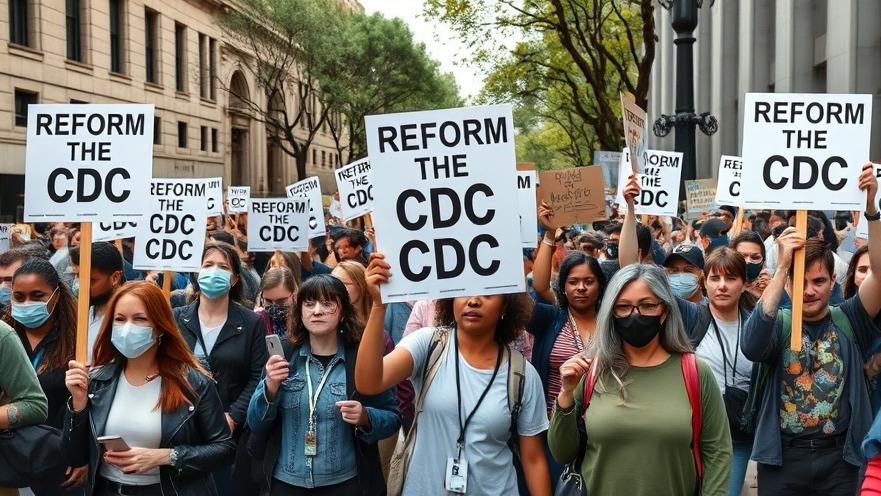
CDC Resignations: A Call for Clarity and Accountability
In a surprising turn of events, several employees at the Centers for Disease Control and Prevention (CDC) have recently resigned in protest following the ouster of the organization's director, Dr. Robert Redfield. This bold move has raised questions about the internal dynamics within one of America’s most pivotal health agencies and the direction it is taking in the fight against public health crises.
The resignations appear to stem from discontent regarding how the CDC’s leadership is handling ongoing and emerging health issues, particularly as the nation grapples with the ongoing fallout from the COVID-19 pandemic. Many in the health sector view the agency's decisions as pivotal to the public's trust in health guidance; thus, staff discontent signals deeper problems that could affect public health policy.
The Importance of Transparency in Healthcare Leadership
The CDC has faced intense scrutiny during the pandemic, with debates over mask mandates, vaccine rollouts, and communications often dividing public opinion. These recent resignations highlight the need for transparent and accountable leadership within health agencies. When employees feel compelled to leave, it sends a message about a potential lack of confidence in leadership's direction and decisions.
Furthermore, the complexities faced by national health leaders today require open lines of communication between health officials and the communities they serve. This can significantly impact how health recommendations are conveyed and accepted by the public, thereby influencing overall public health outcomes.
The Role of Hard Truths in Governance
In her "Reporter's Notebook," Katherine Morgan discusses an intriguing aspect of governance: who tells a president the hard truths? The resignation of CDC employees could indicate a fracture in this critical advisory chain, especially when those in power need accurate, science-based information to govern effectively.
When advisors are reluctant to voice concerns or challenge prevailing narratives, the implications can affect national policies, particularly when health guidance is at stake. Engagement and trust are vital; thus, understanding the dynamics between governmental entities and their advisors becomes crucial for effective governance.
Future Predictions: Health Leadership Post-COVID
Looking forward, the CDC’s leadership and operational structures may require significant reform to regain the trust of its employees and the public. As public health crises unfold, agencies must adapt to these challenges while maintaining their foundational objectives of protecting public health.
Future health leaders will need to prioritize integrity, transparency, and a commitment to science, ensuring that any stagnation in progress—as evidenced by these resignations—does not detrimentally affect the CDC's functioning.
Understanding Public Sentiment Amidst Health Crises
The public’s perception of agencies like the CDC can shape how health initiatives are received, making the recent unrest among its employees particularly noteworthy. As citizens increasingly turn to digital platforms for news and information, the narrative around such organizations can quickly sway public opinion, impacting critical health decisions.
Therefore, it is essential to monitor the media coverage surrounding the CDC carefully. A balanced portrayal can help demystify the resignations and potentially restore public confidence in national health authorities.
Concluding Thoughts: Emphasizing the Need for Accountability
The CDC resignations are not merely a reflection of internal dissatisfaction; they encapsulate a broader narrative about governance in times of crisis. As Katherine Morgan delicately underscores the importance of confronting uncomfortable truths, it is imperative to consider how these issues influence not only the establishment’s reputation but also public health at large.
As stakeholders in health—both officials and citizens alike—we must champion transparency and integrity in our public health institutions. These principles are not only vital for effective governance but essential for ensuring the success of national health initiatives in an era marked by unprecedented challenges.
 Add Element
Add Element  Add Row
Add Row 



Write A Comment